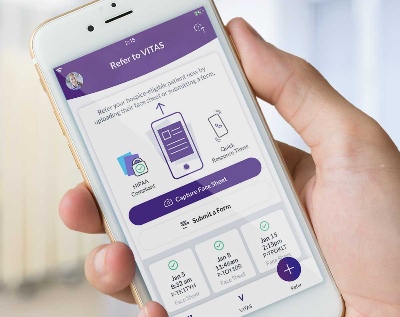By Eric Shaban, MD, Regional Medical Director, VITAS Healthcare
Recent articles in Annals of the American Thoracic Society highlight why goals-of-care (GOC) conversations and advance care planning (ACP) sessions should be common in primary practices, specialty clinics, hospitals, and care facilities for patients facing the challenges of advanced lung disease and other advanced illnesses.
“Suggesting a goals-of-care conversation should be as commonplace in a clinician’s daily routine as taking vital signs.”
We want our healthcare colleagues to know that we are prepared at any time to step in and help facilitate these conversations on their behalf, and to follow up by providing expert end-of-life care in patients’ preferred settings so that they receive the comfort-focused modalities and support they want and deserve.
Engaging in and completing these conversations delivers measurable, high-impact results for all parties involved.
Where to Start a Goals-of-Care Conversation: 5 Questions
First, palliative care discussions identify key parameters for a patient’s care moving forward. Here are 5 questions you can ask your patient with advanced illness to help guide their care:
- “What do you understand about your disease?”
- “What are your fears and concerns about your worsening health?”
- “What is important to you?”
- “What do you want your medical care to look like moving forward?”
- “Are you ready to put your wishes and goals for care in writing so that you, your family, and your medical care team know your preferences?”
For patients, GOC conversations result in better outcomes and greater satisfaction with care. For healthcare providers, they result in goal-concordant care that delivers measurable cost savings for patients who have incurable diseases like advanced chronic obstructive pulmonary disease (COPD) or lung cancer.
Data cited in this quarter’s perspective (Ruggiero, R. and Reinke, L.), in fact, notes that the inclusion of palliative care—which is built around GOC conversations and advance care planning—saves an average of $3,237 per patient over the course of a hospital stay, compared with patients who do not receive palliative care.
Sooner Is Better
Our message to our non-hospice, non-palliative care healthcare colleagues is that the sooner these conversations take place, the better it is for everyone involved. Many patients with advanced lung disease, in fact, are eligible for hospice care long before these conversations occur.
Follow along with an example of an advance care planning conversation:


